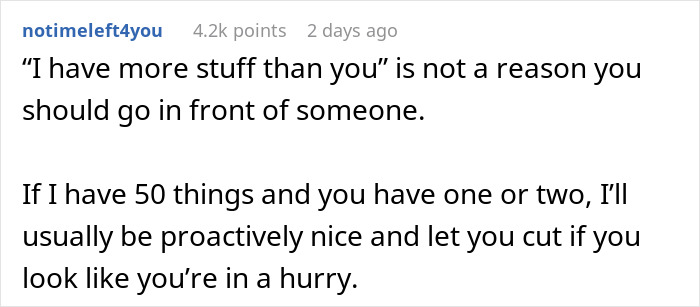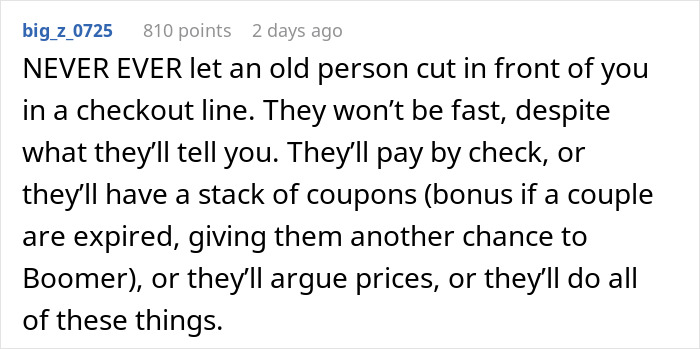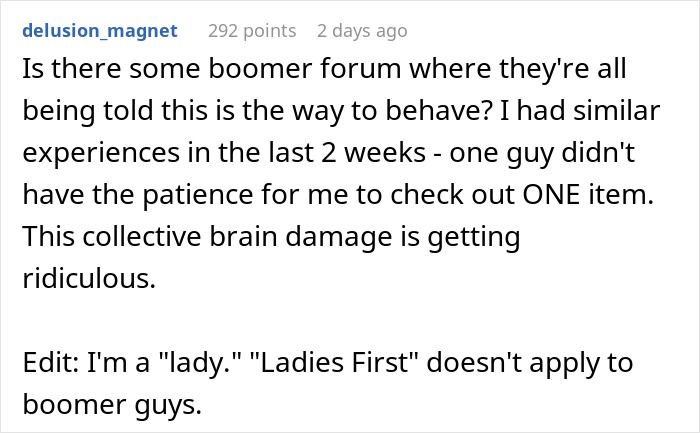Few things make people as unattractive as entitlement. Recently, a person who goes online by the nickname NotASmurf submitted a story on the subreddit ‘Boomers Being Fools‘ about a lady in a grocery store who behaved in such an appalling way that she quickly became enemies with everyone there.
While the other customers patiently waited in lines, she decided that her time was more valuable than theirs and made an attempt to cut in front. However, her plan failed when one guy refused to let her pass.
Entitled people run amok if nobody puts them in their place

Image credits: ThamKC (not the actual image)
Which is exactly what happened to this selfish lady

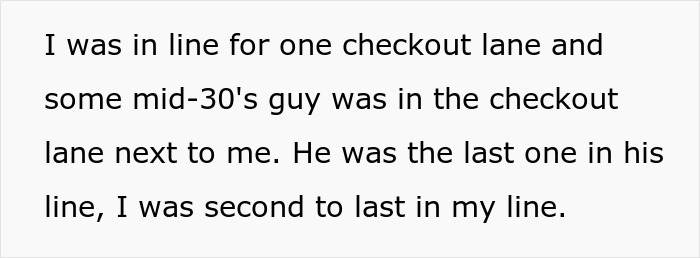
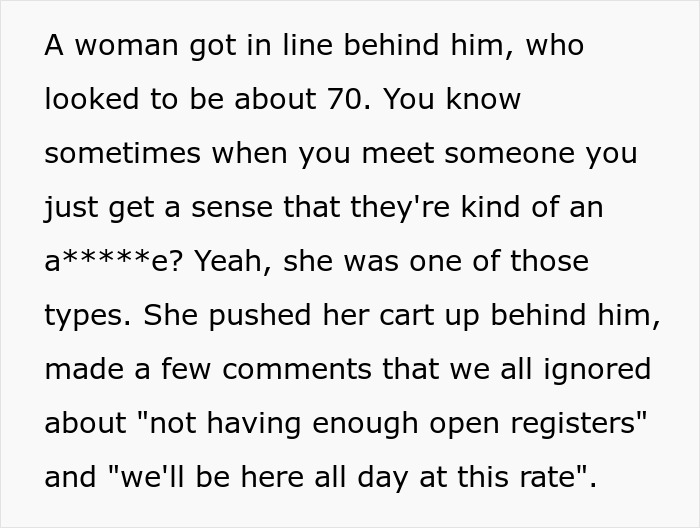

Image credits: Kampus Production (not the actual image)
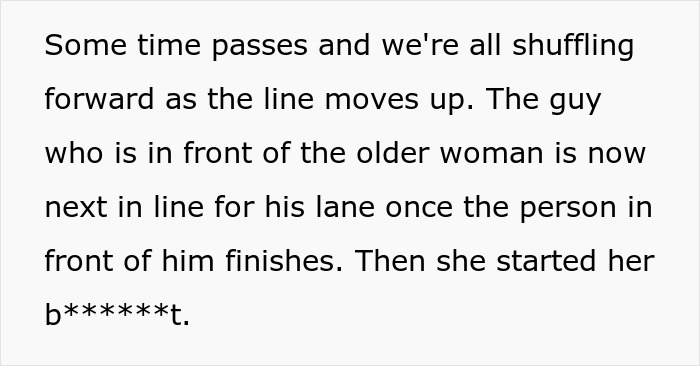
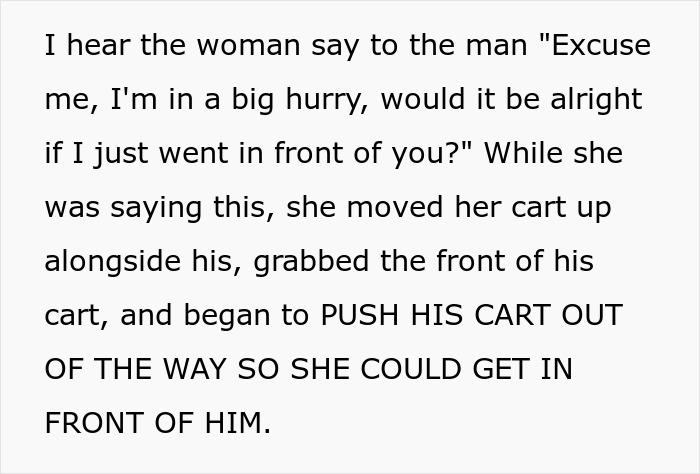
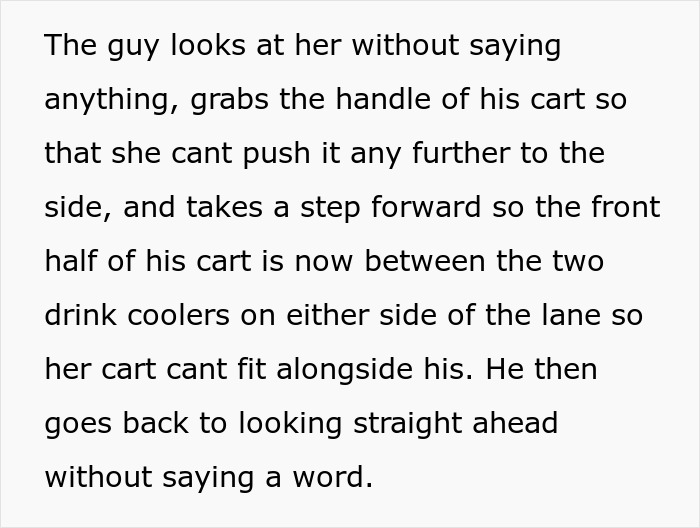
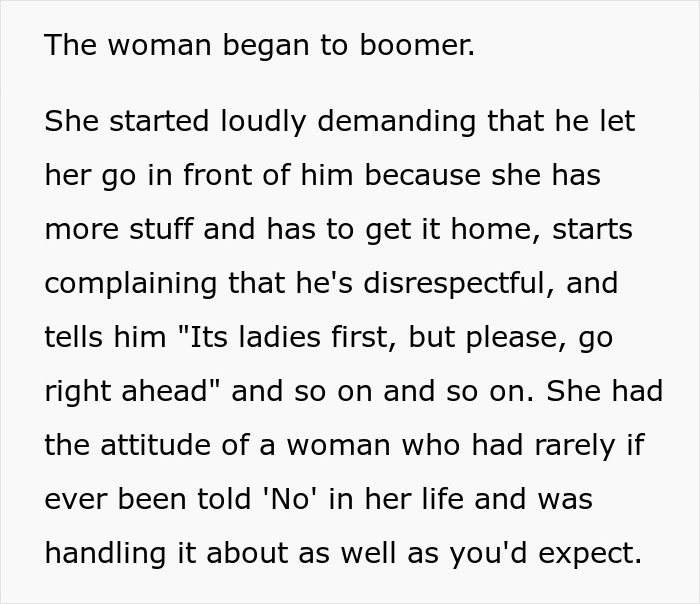
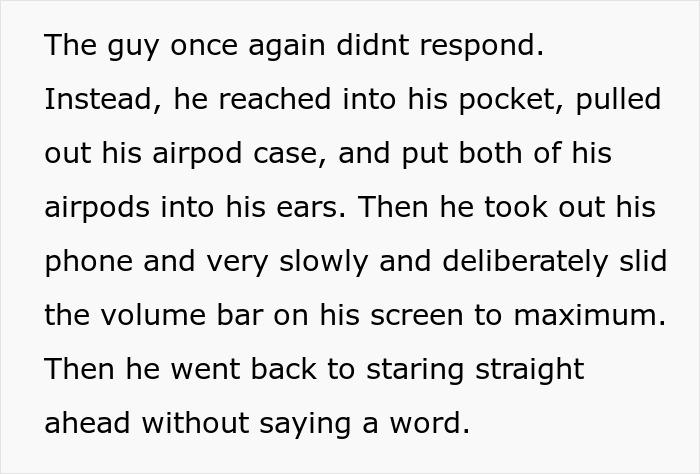

Image credits: cottonbro studio (not the actual image)
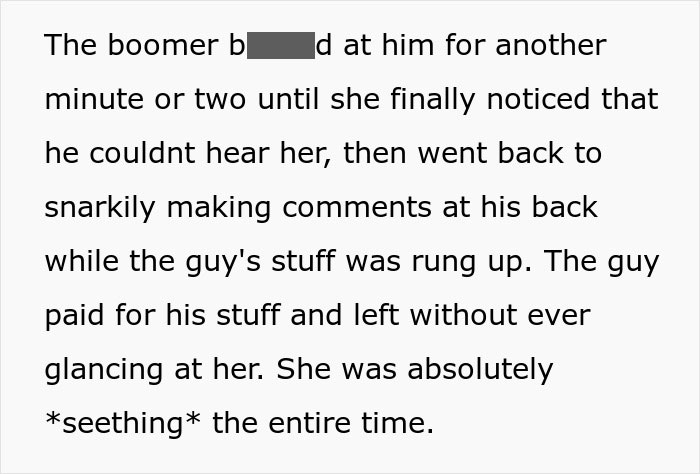

Image credits: NotASmurf
The lady demonstrated textbook exaggerated entitlement behavior
According to therapist Dr. Steven Stosny, who has treated over 6,000 clients for various forms of anger, abuse, and violence, when people feel entitled, they are not merely disappointed when others fail to accommodate their presumed rights. They feel cheated and wronged. Just like this lady, they get angry, exude hostility, and assume a stronger sense of entitlement as compensation.
“Of course, once we’re older than five and not cute anymore, the world is not likely to meet our entitlement needs,” Stosny wrote. “It gets to be a downward spiral—the more they don’t get what they’re sure they deserve, the more justified they feel in demanding compensation. The person who cuts in front of you in line is often saying: ‘With the way I’ve been treated, I shouldn’t have to wait in line, too!'”
Exaggerated entitlement isn’t exclusive to violent criminals. “Caught up in the talk-show, self-help, personal-growth mania that dominates popular culture, many feel entitled not just to the pursuit of happiness, not even just to happiness, but to feeling good most of the time,” Stosny said. “This level of entitlement, this ‘cult of feeling good,’ is partly responsible for the sharp increase in anger and stress. When the entitled don’t feel good, which is much of the time, they feel victimized.”
There are a few ways you can respond to these people in everyday life, but psychology researcher Stefan Falk suggests the following three:
1. Avoid them, if and when possible. Sometimes, you have to speak up for your own peace of mind. But engaging with selfish people often leads to negative results. Unfortunately, they’re widespread, so learning to deal with them is important to your own well-being and success.
2. Set clear boundaries. Call them out when their behavior becomes too much. Consider questions like: “Could you clarify how this behavior benefits the company?” or “Do you genuinely believe this behavior serves your own best interests?” At the very least, you can make clear that their actions are unacceptable to you.
3. Educate them on the risks they face. Selfishness has many negative impacts. For instance, you could say, “If you only focus on what fits your needs, you’ll get tunnel vision. This affects everything from tasks to interactions to learning, and it won’t serve you in the long run.” Or, “If you see everything as a personal offense, you will be constantly frustrated, unfulfilled, and burdened by negative thoughts about others.” In many cases, know that you may not get the response you had hoped, though.
However, it sounds like the guy in line handled everything pretty well, doesn’t it?

Image credits: Karolina Grabowska (not the actual image)
People were glad to hear how the whole ordeal ended
